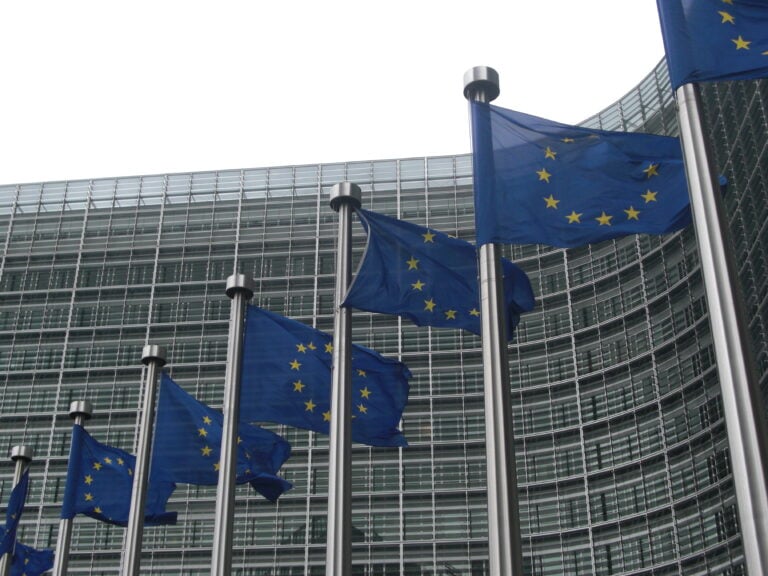
The Council of the EU has approved a law that will require some EU companies to audit their supply chains to avoid environmental damage and human rights abuses.
The Corporate Sustainability Due Diligence Directive (CSDDD) was approved by the Council on Friday (15th March) after weeks of delay and renegotiation. Companies will have to identify, prevent and mitigate “adverse human rights and environmental impacts” in their own, their subsidiaries’ and their supplies’ operations.
Try Premium for just $1
- Full premium access for the first month at only $1
- Converts to an annual rate after 30 days unless cancelled
- Cancel anytime during the trial period
Premium Benefits
- Expert industry analysis and interviews
- Digital access to PV Tech Power journal
- Exclusive event discounts
Or get the full Premium subscription right away
Or continue reading this article for free
The final version of the directive will apply to EU-based companies with 1,000 employees or more and annual turnover of at least €450 million (US$490 million). This threshold is higher than the original proposal, which would have applied to companies with 500 employees and a net worldwide turnover of €150 million (US$163 million). This first version of the CSDDD was rejected in late February by a number of EU member states led by Germany’s Free Democratic Party (FDP).
Following the Forced Labour Ban
The European solar PV industry has turned its attention to its supply chain in recent months, due to growing concerns about the transparency of these arrangements, and the CSDDD could be significant for the sector.
Head of supply chains at representative trade body SolarPower Europe, Anett Ludwig, said: “Companies need legislative certainty to manage their compliance requirements effectively and efficiently, and through these latest political decisions, the solar sector now has a path forward to reinforce our supply chain sustainability in line with law.
“To ensure legislative coherence – and the clearest path possible – we ask that the CSDDD is referenced within the final text and implementing guidelines of the Forced Labour Ban regulation.”
The EU passed its Forced Labour Ban earlier this month (5th March), which will see member states – or the European Commission if a third country is involved – investigate the supply chains of companies operating in the EU where exposure to forced labour practices is suspected.
The upstream portions of the solar supply chain – predominantly polysilicon production – are operating under the shadow of alleged forced labour practices in Xinjiang province, China, where much of the world’s polysilicon is produced and its raw materials are mined. Both the CSDDD and the Forced Labour Ban are awaiting final approval by the European Parliament.
Supply transparency
In the council’s approval text, section 15 says that the directive “should not require companies to guarantee, in all circumstances, that adverse impacts will never occur or that they will be stopped.”
It goes on to say that in some cases – such as “where the adverse impact results from state intervention” – companies may be unable to ensure that their supplies are compliant and should not be asked to do so. Instead, the directive should operate on “obligations of means”, whereby companies should take “appropriate measures” to address human rights or environmental issues but “the circumstances of the specific case” should be taken into account.
For solar PV, “state intervention” in the supply chain has been a sticking point. At a conference last month, members of the European Solar Manufacturing Council (ESMC), European Parliament and human rights campaign groups called for a “reversal of the burden of proof” for solar supply chains, whereby companies have to prove their own compliance with import laws, rather than governing bodies investigating them.
Speakers at the conference said that this model – which was adopted by the US’ Uyghur Forced Labor Prevention Act (UFLPA) – is the only “valid” way to ensure that solar supply chains are free from human rights abuse, because of the inability for external companies to see “on-the-ground” operations in Xinjang province, where “state-sponsored” forced labour is allegedy perpetrated.
This month’s EU Forced Labour Ban does not propose to “reverse the burden of proof,” and will instead rely on investigations made by the European Commission.
The EU recently announced measures to support domestic solar manufacturing in what Kadri Simson, EU the commissioner for energy, said was a “very fragile situation” for the sector. The bloc still the bloc relies overwhelmingly on imports, however, the majority of which come from China.






